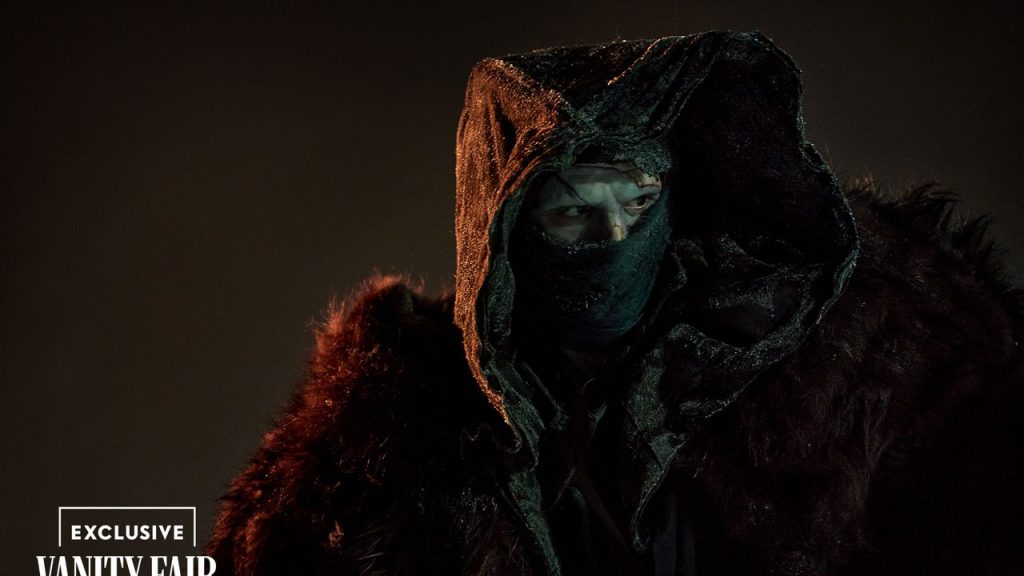The incessant laughter between him and Isaac lightens the mood on a gloomy story story about the hubris of trying to defy death rather than savoring the fleeting time we are given. “What’s interesting to me is that he’s not trying to keep me in some sort of dark evil zone. He basically directs in jokes to me,” Isaac says.
Del Toro, who’s from Mexico, often delivers these bleak gags in Spanish to Isaac, who was born in Guatemala. “It feels like I’m making something with a family member,” Isaac says. Speaking Spanish also kept them out of trouble. “A lot of the jokes aren’t translatable because they sound kind of awful when you’re telling them in English,” the actor admits.
Though the movie itself does not have a lighthearted tone, del Toro’s operatic approach gives it an over-the-top feeling that softens the blows. “There’s absurdity in the face of darkness, which is a very, very elemental trait of Latin America,” Isaac says. “There’s a nuance about how one approaches death and darkness that has a surreality to it.”
Del Toro’s Frankenstein delves into an aspect sometimes overlooked by readers of Mary Shelley’s Gothic classic. Her book, subtitled The Modern Prometheus, is often seen as a warning about heedless science. But del Toro uses Shelley’s tale of grim resurrection to dramatize toxic family dynamics. “It’s parents and children,” Elordi says. “Fathers and sons, particularly.”
It’s a theme that del Toro has visited before. “These are the parallels between Pinocchio and Frankenstein,” the filmmaker says. “It’s the idea of a person going from a baby to a human being in a short span of time and being exposed to everything—cold, warmth, violence, love, loss. And then going to his creator to say, ‘Why? Why did you put me here? Why didn’t you give me the answers? What do I have to learn in my suffering?’”
In the decades he has been refining his script, the writer-director also drew upon his Roman Catholic background. It’s no accident that the table on which the monster is born rises up with his arms spread, as though on a crucifix. Del Toro also drew connections between his monster and the Book of Job, in which God tests a man’s faith by heaping misery upon him. “Job is saying to God, ‘Why do bad things happen to good people?’ And God is answering very, very biblically: ‘Who the fuck are you to ask me a question?’” del Toro says with a laugh.
Isaac’s Dr. Frankenstein is just as impatient with his creation’s neediness, and replicates the merciless treatment he learned as a child from his own imperious father (played by Charles Dance). “The movie is trying to articulate that the father becomes his father to his son without realizing it,” del Toro says. In turn, the monster revolts against his creator in a clash that rips through the Frankenstein family, creates bloodshed and destruction, and leads both men—the scientist and his creation—into the dead end of a frozen wasteland.

